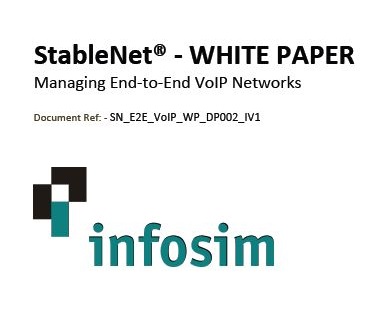Many businesses are choosing to realize the potential for lower costs and improved business functionality by deploying Voice over Data Network (VoIP) technologies. Contact centers, remote offices, campus networks and private corporate networks are all candidates for implementing a VoIP network.
Some of the commonly discussed benefits of VoIP are:
- Uses your existing data network (IP)
- Provides a new and rich feature set
- Extends remote users number portability
- Potential savings, especially overseas
- Eliminates a need for redundant infrastructure
It is important to realize that even though you may end up with lower operating cost, (contrary to advertising claims the cost savings are small) VoIP offers a big step forward in available features and functions. For example, it is now perfectly feasible and cost effective for a 20 person small business to run a call center of its own and to have one system manage main and branch offices and even remote and telecommuting workers.
The ability to work anywhere will dramatically change the way we do work, and VoIP is the enabler to network branch offices or disparate switches across the country, in order to reduce cost and be more self sufficient from the telco.
VoIP Defined
Voice-over-IP (or Internet telephony) is any one of several technologies that describes the conversion of analog voice to digital signal using a codec and Vocoder. The packets are then transferred in real-time as packetized data over an IP-based network, private or public that employs the Transmission Control Protocol (TCP), Real-Time Transport Protocol (RTP), User Datagram Protocol (UDP) and internet Protocol. At the destination the packet-based signal is converted back to an analog voice allowing the receiver to hear the call.
Deploying Voice onto your Network
Unlike traditional PSTN systems, with VoIP systems, analog voice signals are digitized and transmitted as a stream of packets over a digital data network. IP networks allow each packet to independently find the most efficient path to the intended destination, thereby using the best network resources at any given instant. The packets associated with a single source may thus take many different paths to the destination in traversing the network, arriving with different end-to-end delays, arriving out of sequence, or possibly not arriving at all. VoIP technology insures proper reconstruction of the voice signals, compensating for echoes made audible due to the end-to-end delay, for jitter, and for dropped packets.
- Network Delay - creating voice delays
- Packet Loss - causing "holes" in the conversation
- Packet Jitter - producing muffled voices
- Poor IP Quality - rendering the network unusable
|
Traffic Profiles and Requirements |
||
|
Voice |
Video Conf |
Data |
|
Smooth Benign Drop Sensitive Delay Sensitive |
Bursty Greedy Drop Sensitive Delay Sensitive |
Smooth/Bursty Benign/greedy Drop insensitive Delay Insensitive |
In today's environment you need to ensure that you know if your network is ready to support VoIP, and be able to monitor this network 24 x 7 to realize when the user is experiencing bad call quality. Telnet Networks has partnered with industry leading suppliers to provide a complete line of VoIP Solutions for both Enterprise and Developer markets.




